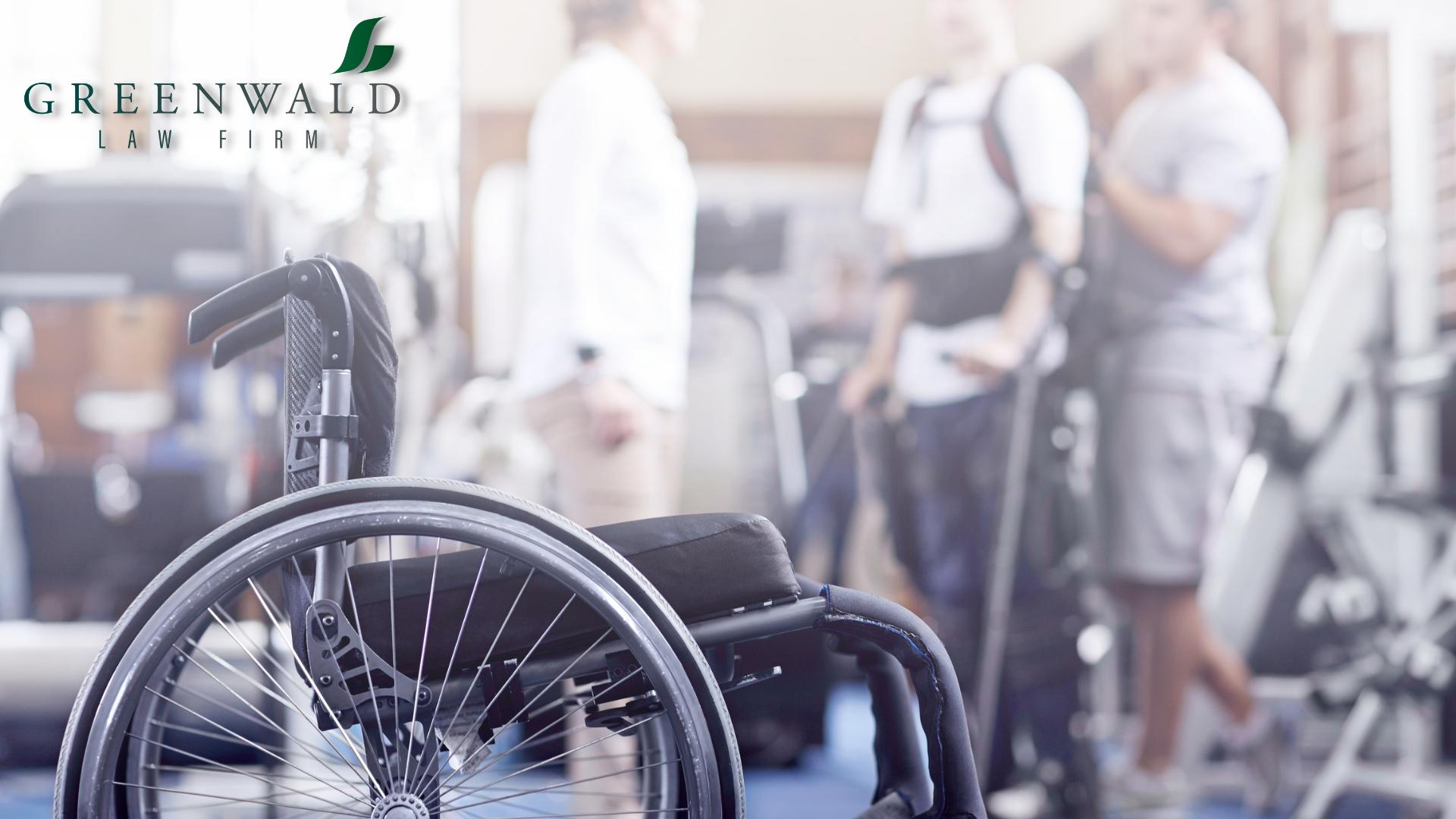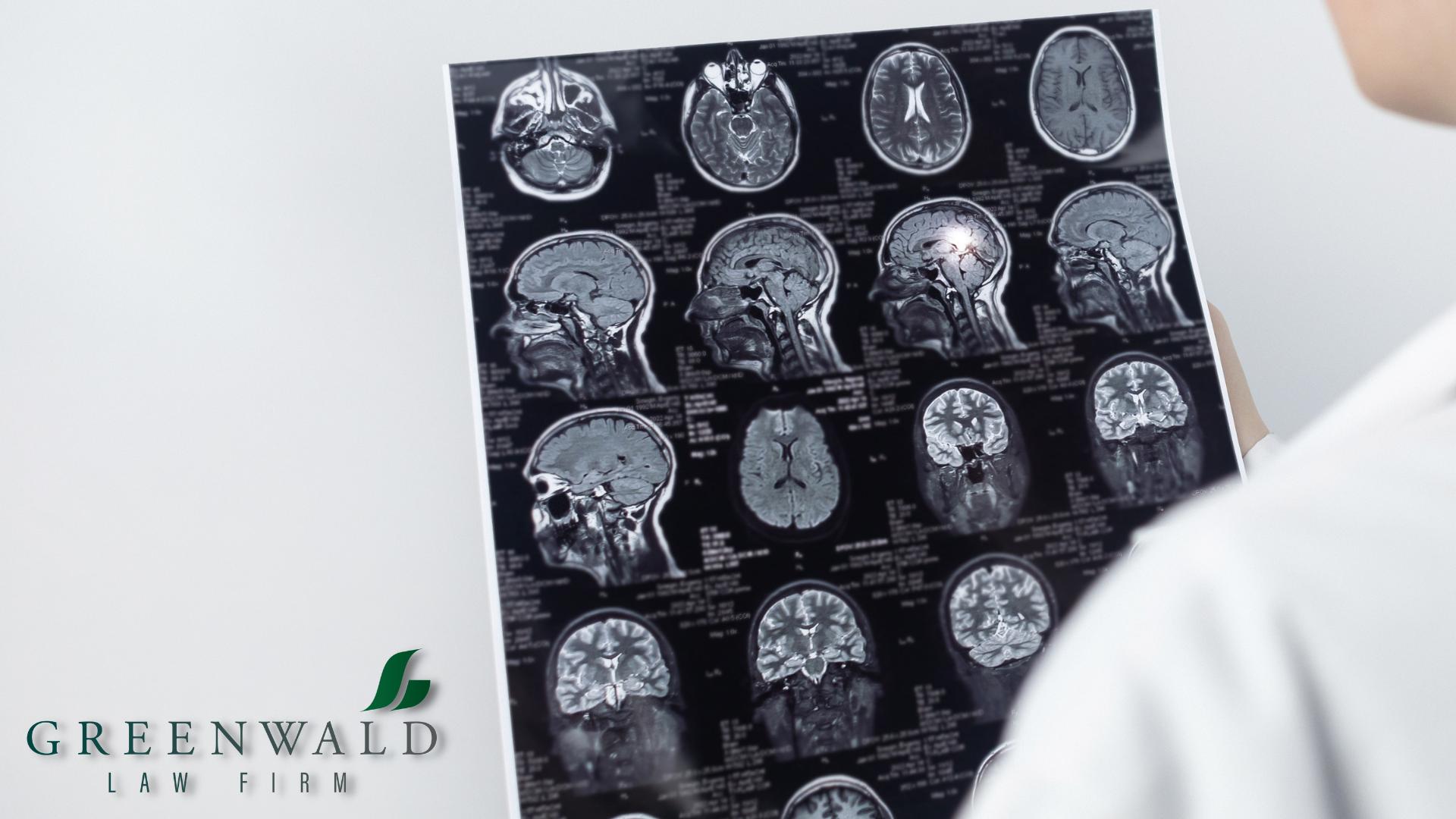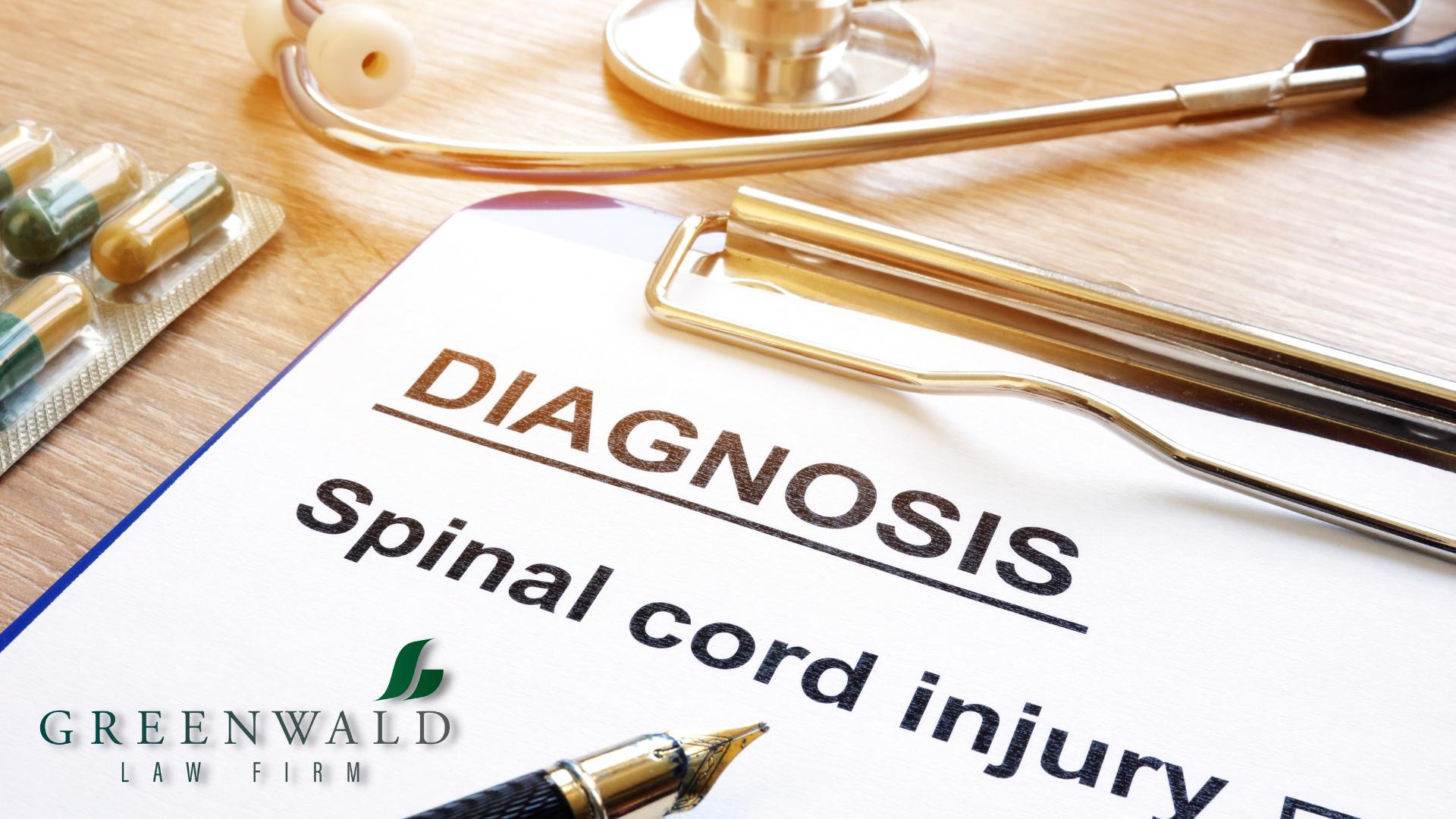SHREVEPORT BRAIN AND SPINAL CORD INJURY LAWYER
Shreveport Brain and Spinal Cord Injury Lawyer
Brain and spinal cord injuries are devastating and often result in severe paralysis or even death. In 2010, the Center for Disease Control (CDC) reported approximately 2.5 million emergency room visits, hospitalizations, and deaths resulting from a traumatic brain injury (TBI). More than 50,000 people died after sustaining a TBI. At The Greenwald Law Firm, we have the experience and knowledge to help guide clients through the difficult and emotional time following a TBI.
The most common causes of TBI are slip and fall accidents, motor vehicle accidents, assaults, sports accidents, and accidents at work. According to the CDC, young children and the elderly are at increased risk of sustaining injuries due to slipping or falling, while car accident injuries are the leading cause of TBI-related death for children and young adults ages 5-24.
In 2016, the National Spinal Cord Injury Statistical Center (NSCIS) estimated approximately 17,000 new spinal cord injury (SCI) cases each year. The NSCIS also reported that about 30% of individuals who suffered an SCI were re-hospitalized one or more times following their injury. The average length of these recurring hospitalizations was 22 days. Spinal injuries can lead to partial or complete paralysis of any or all extremities.
To schedule a free consultation with a Shreveport brain and spinal cord injury lawyer at Greenwald Law Firm LLC, call us today at 318-219-7867.

Types of Spinal Injuries
The spinal cord is an essential part of the human body that delivers messages from the brain throughout the rest of the body. It’s surrounded and protected by meninges, layers of tissue, and spinal bones, vertebrae. A spinal cord injury (SCI) happens when a sudden or traumatic injury causes broken bones around the spinal cord. These broken bones can damage the spinal cord and the surrounding nerves. In some occurrences, the damage can be so severe that the spinal cord is severed or split.
Spinal cord injuries can either be incomplete (partial) or complete.
- Incomplete: Following a partial injury, the brain may be able to communicate with one or both sides of the body, which allows the person to have some limited functions.
- Complete: These injuries usually result in total paralysis in the area below the injury site. Both sides of the body are affected. Individuals may develop quadriplegia, paralysis in all four limbs, or paraplegic, paralysis in the bottom half of the body.
The most common types of spinal cord injuries are:
- Spinal fractures
- Bulging discs
- Back strains
- Neck strains
- Whiplash
- Vertebrae injuries
- Herniated discs
Individuals with spinal injuries may lose some bodily functions due to specific nerves not communicating with the brain. An accident causing damage to the spinal cord can affect the following bodily functions:
- Breathing
- Reflexes
- Sensations
- Muscle movements
- Bladder and other intestinal functions
- Metabolism
Following a spinal cord injury, you will require physical therapy or rehabilitation. Depending on your spinal injury type, you may need inpatient or outpatient therapy or rehabilitation.
It’s important to seek legal representation from a skilled spinal injury lawyer when your spine injuries were caused by an accident due to the negligence of another. Medical bills, physical therapy, and other medical expenses can add up following an accident, especially when you can’t work due to your injuries.

Types of Brain Injuries
A traumatic brain injury can happen when a person suffers a dramatic blow to the head. These brain injuries can either be penetrating, like a bullet wound, or non-penetrating, like hitting your head on the steering wheel in a car accident. Everyone is at risk of suffering from a traumatic brain injury. However, men are 40% more likely to suffer a TBI accident than women. People over 65 are also at risk of an accident causing a traumatic brain injury due to decreased mobility functions.
Traumatic brain injuries are a major cause of disability and death in individuals throughout the United States. According to the CDC, around 190 people died daily in 2021 from traumatic brain injuries, and over 220,000 were hospitalized with TBI-related injuries.
A brain injury can either be an open injury (also called penetrating) or a closed brain injury.
- Open brain injury: A penetrating brain injury occurs when something like a knife, bullet, or other object pierces the brain after breaking the skull.
- Closed brain injury: The majority of traumatic brain injuries are closed. To be considered closed, a strong outside force impacts the head but does not puncture the skull. The force is so dramatic that it causes the brain to bounce against the sides of the skull, which leads to swelling of the brain.
Severity of Brain Injuries
Brain injuries are separated by three levels of severity. Medical professionals will evaluate their memory loss and consciousness and their Glasgow Coma Scale (GCS) score to determine how severe a person’s brain injury is. The GCS uses eye-opening, verbal, and motor responses to measure the severity of the traumatic brain injury. Traumatic brain injuries can be considered mild, moderate, and severe.
- Mild TBI: A person suffering from a mild traumatic brain injury usually does not lose consciousness. If they do, however, it’s no more than 30 minutes. A person may experience some memory loss, but no longer than 24 hours. Their GCS score is 13 to 15. Individuals suffering from a mild TBI usually heal within a few weeks with rest. Concussions are considered mild traumatic brain injuries.
- Moderate TBI: A moderate traumatic brain injury causes a person to lose consciousness for over 30 minutes, with some remaining unconscious for 24 hours. A person can suffer from memory loss for up to a week. A moderate traumatic brain injury has a GCS score of 9 to 12. Medical treatment is highly recommended for moderate TBI.
- Severe TBI: A person with a severe traumatic brain injury will remain unconscious for over 24 hours. Their GCS score is eight or below, and their memory loss lasts longer than a week.
Common Traumatic Brain Injuries
Now that we’ve covered the types and levels of severity of traumatic brain injuries, below we will list the most common TBIs that can be pursued by a personal injury lawsuit.
- Concussion: Also considered a mild traumatic brain injury, concussions are the most common type of brain injury. Concussions are usually caused by a blow to the head from a fall, car accident, or other force that causes the brain to bounce around in the skull.
- Penetrating brain injury: When an object breaks through the skull and pierces the brain, also called an open brain injury. This type of brain injury causes brain bleeding and kills brain cells. Penetrating brain injuries can lead to blood clots, swelling and bleeding, stroke, and lack of oxygen due to decreased blood circulation around the brain.
- Diffuse Axonal Injury: A diffuse axonal injury, DAI, starts with a force that shifts the brain in the skull. That force shakes the brain so dramatically that the axons are torn away from the brain. Axons are long nerve fibers that carry electrical impulses from the brain to the body. A person that suffers from a DAI may end up in a coma or sustain injuries throughout multiple areas of the brain.
- Anoxic Brain Injuries/Contusions: When the brain is deprived of oxygen, it can lead to anoxic brain injuries. After four minutes without oxygen, the brain can start to lose brain cells. Damaged blood vessels can also lead to anoxic brain injuries because they prevent oxygen from reaching the brain. Contusions happen when the brain hits the skull resulting in bruises on the brain. Bleeding around the bruise can lead to brain swelling. When the brain is not relieved of the pressure from the swelling, it can become deprived of oxygen leading to anoxic brain injuries.

What Causes Brain and Spinal Cord Injuries?
When a significant accident leads to a traumatic brain or spinal cord injury, the results can be life-altering. The most common causes of these catastrophic injuries include:
- Motor vehicle accidents
- Slip and fall accidents
- Assaults or other violent acts
- Sports and recreational injuries
- Work accidents
Damages for Brain Injury and Spinal Injury in a Personal Injury Case
Individuals affected by head and central nervous system injuries and their families face numerous expenses. The burden of hospital bills can be extremely distressing, especially when you cannot work due to your injury. Accidents do happen. However, such severe trauma is typically the result of negligence. If you or a loved one suffered a spinal or brain injury due to the negligence of another person, you may be entitled to financial compensation for the following:
- Lost wages
- Hospitalization
- Rehabilitation
- Counseling
- Home Health
- Medical equipment and devices
- Funeral and burial costs, if the accident resulted in a loved one’s wrongful death
Why You Need a Brain and Spinal Cord Injury Attorney
You may not think you need to hire a personal injury attorney after sustaining a brain or spinal injury, but they can help you pursue legal action against who or what caused the accident. When you’ve been injured due to the negligence of another, you have the right to file a personal injury lawsuit. Hiring a brain and spinal injury attorney to handle your personal injury lawsuit is important so that they can obtain maximum financial compensation for your injuries, including medical costs, lost wages, and more. Your attorney will handle the legal fight so you can focus on recovering.

Call a Shreveport Personal Injury Attorney at Greenwald Law Firm For a Free Consultation Today
At the Greenwald Law Firm LLC, our attorneys have handled many personal injury cases for the residents of Shreveport and are ready to represent you. We understand how traumatizing it can be following an accident resulting in a brain or spinal injury, and our compassionate attorneys will fight for your rights. You shouldn’t have to bear the financial burden of injuries caused by a negligent accident. Our Shreveport personal injury attorneys will ensure you receive maximum compensation for your injuries. To discuss your case with an injury lawyer in Shreveport, call 318-219-7867 today to schedule a free consultation.